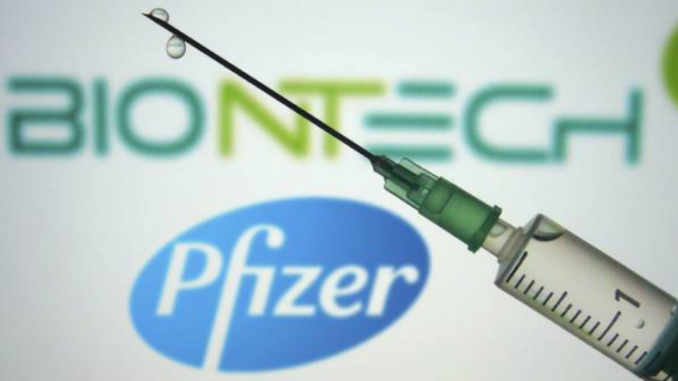
Pfizer announced Saturday that tweaking its COVID-19 vaccine to better target the omicron variant is safe and works — just days before regulators debate whether to offer Americans updated booster shots this fall.
The vaccines currently used in the U.S. still offer strong protection against severe COVID-19 disease and death — especially if people have gotten a booster dose. But those vaccines target the original coronavirus strain and their effectiveness against any infection dropped markedly when the super-contagious omicron mutant emerged.
Now with omicron’s even more transmissible relatives spreading widely, the Food and Drug Administration is considering ordering a recipe change for the vaccines made by both Pfizer and rival Moderna in hopes that modified boosters could better protect against another COVID-19 surge expected this fall and winter.
Pfizer and its partner BioNTech studied two different ways of updating their shots — targeting just omicron, or a combination booster that adds omicron protection to the original vaccine. They also tested whether to keep today’s standard dosage — 30 micrograms — or to double the shots’ strength.
In a study of more than 1,200 middle-aged and older adults who’d already had three vaccine doses, Pfizer said both booster approaches spurred a substantial jump in omicron-fighting antibodies.
“Based on these data, we believe we have two very strong omicron-adapted candidates,” Pfizer CEO Albert Bourla said in a statement.
Pfizer’s omicron-only booster sparked the strongest immune response against that variant.
But many experts say combination shots may be the best approach because they would retain the proven benefits of the original COVID-19 vaccine while adding new protection against omicron. And Pfizer said a month after people received its combo shot, they had a 9 to 11-fold increase in omicron-fighting antibodies. That’s more than 1.5 times better than another dose of the original vaccine.
And importantly, preliminary lab studies show the tweaked shots also produce antibodies capable of fighting omicron’s genetically distinct relatives named BA.4 and BA.5, although those levels weren’t nearly as high.
Moderna recently announced similar results from tests of its combination shot, what scientists call a “bivalent” vaccine.
The studies weren’t designed to track how well updated boosters prevented COVID-19 cases. Nor is it clear how long any added protection would last.
But the FDA’s scientific advisers will publicly debate the data on Tuesday, as they grapple with whether to recommend a change to the vaccines’ recipes — ahead of similar decisions by other countries.
Via Newsmax
